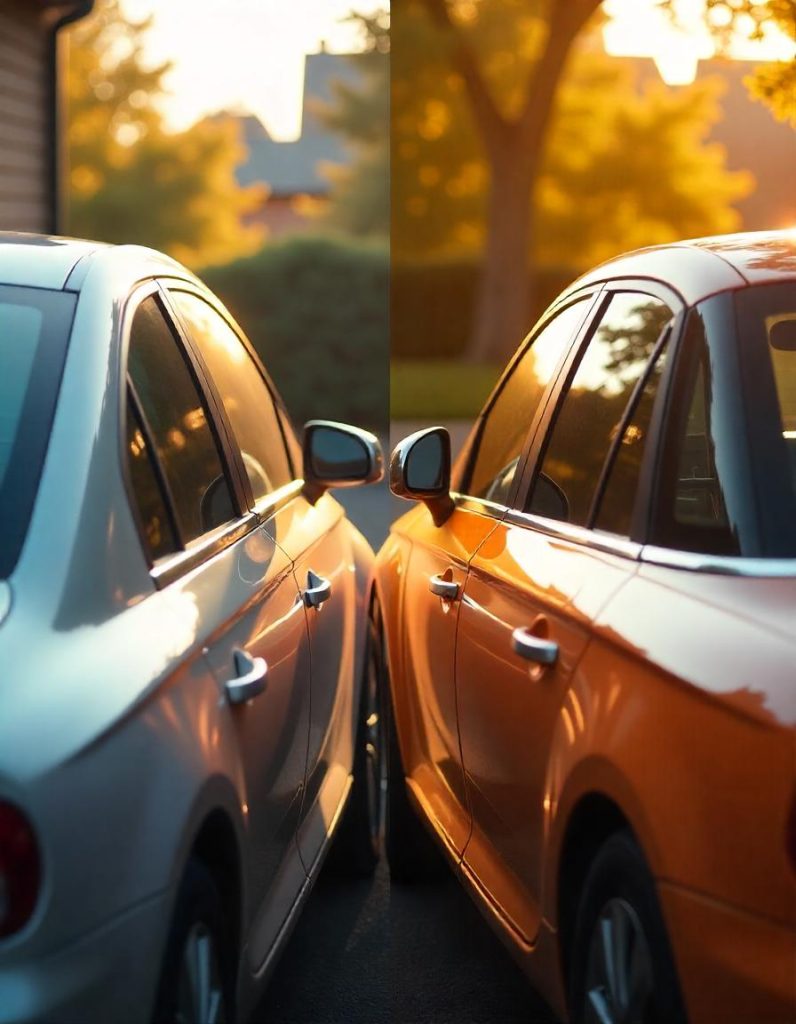When you invest in a car, you want to maintain its value and ensure that it stays in top condition for years to come. One of the most common issues that car owners face, especially in sunny climates, is UV (ultraviolet) damage. UV rays from the sun can cause significant wear and tear to your vehicle’s interior, fading upholstery, cracking leather seats, and damaging the dashboard. Window tinting offers an effective solution to mitigate this problem, providing a protective shield for your car’s interior. Here’s how window tinting Sydney can help safeguard your vehicle.

UV Radiation and Its Effects on Your Car’s Interior
UV rays are harmful rays from the sun that can penetrate windows and reach the interior of your car. While you may not always feel the impact of UV radiation directly, it can have a slow but damaging effect over time. UV radiation is primarily responsible for fading and degrading materials such as fabrics, leather, vinyl, and plastics. It can cause upholstery to lose its color and vibrancy, and, in extreme cases, it can lead to cracks in the dashboard and other interior components.
The effects of UV radiation aren’t just aesthetic—UV exposure can also affect the health of your car’s interior materials. For example, the dashboard can warp and crack from prolonged exposure to UV rays, and the leather seats can become brittle and start to peel. The long-term damage can significantly lower the resale value of your vehicle, making it crucial to take preventive measures.
How Window Tinting Works
Window tinting involves applying a thin, transparent film to the windows of your vehicle. The film is typically made from a combination of polyester and a special layer that blocks UV rays. High-quality window tint films can block up to 99% of harmful UV radiation, significantly reducing the amount of UV light that penetrates your car’s windows.
The tint works by reflecting or absorbing UV rays before they reach the interior surfaces of your vehicle. This prevents UV rays from causing damage to your car’s upholstery, dashboard, and other sensitive areas. Additionally, window tinting helps to reduce heat buildup inside the car, making it more comfortable to drive on hot days.
Benefits of Window Tinting Beyond UV Protection
While UV protection is one of the primary benefits of window tinting, it also offers several other advantages for car owners. One of the most significant benefits is heat reduction. The window tint film reflects a significant amount of solar heat, keeping the inside of your car cooler. This is particularly important in hot climates, as it can reduce the need for air conditioning, improving fuel efficiency.
Window tinting also enhances privacy by limiting the visibility inside your car. This can be a deterrent to theft, as potential thieves are less likely to target a car if they can’t see the valuables inside. Additionally, tinted windows reduce glare from the sun, improving visibility and comfort while driving.
Conclusion
Window tinting is an effective way to protect your car’s interior from the damaging effects of UV radiation. By reducing UV exposure, it helps preserve the appearance and integrity of your upholstery, dashboard, and other interior components. Beyond that, window tinting also provides benefits such as heat reduction, enhanced privacy, and improved driving comfort. If you want to prolong the life of your vehicle and maintain its value, window tinting is a wise investment. Please Browse our site ( https://epictintandwraps.com.au/ ) or call ( +61 407 555 586 ) for a chat. We look forward to serving you.

